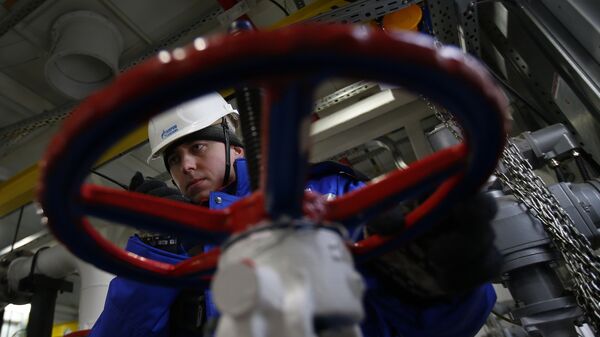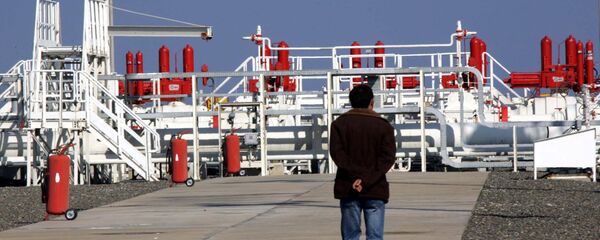"In recent weeks the 'Asia Vision' tanker set sail from the coast of Louisiana for Brazil, with the first American exports of LNG," economics correspondent Gerald Hosp wrote.
"The event was celebrated in many places as the beginning of a new era. Commodity traders in LNG are even convinced that this is an understatement. The move is likely to accelerate turbulence in the gas market, which would also cause Russian state-controlled gas giant Gazprom to change its pricing policy."
In addition to gas exports from the US, swamped by shale oil, Australia is also set to begin exporting LNG gas, and the first shipment from the Gorgon gas project "will fire the starting shot for a wave of Australian gas projects that should make the country the largest LHG exporter in the world, ahead of Qatar."
"On the market the question arises of how Gazprom will react. Europe is still the most important market for the Russian concern."
"Some speak martially of the beginning of a price war for market share similar to the approach of Saudi Arabia in the oil market, which leaves the taps on despite a sharp fall in the price."
"A price war could work in the Russian company's favor: similar to the desert state Gazprom has large amounts of excess capacity and very low production costs," Hosp wrote.
"Such a step would be relatively easy because the Russian gas price for Europe, which to a great extent is bound to the oil price, has fallen along with the spot market price. The losses would therefore not be so great," though a price war would only make sense if oil prices remain low, he pointed out.
In the short term, Henderson wrote, the company has to determine to what extent it is willing to reduce its prices and push out US LGN producers who have to contend with the variable costs of gas purchase, shipping and regasification; it may also decide to expand demand for gas by displacing coal in Europe's power sector.
In the longer term, post 2020, Gazprom may choose to prolong lower prices in order to discourage investment in new LNG projects with higher overheads.
"There may be some logic for Gazprom, as one of the lowest cost suppliers to Europe with spare capacity, in adopting a Saudi-like strategy in order to reinforce its long-term competitive advantage." Henderson wrote, reporting that Gazprom is already showing greater flexibility and is selling more gas in spot trading as well as traditional longer term contracts.




